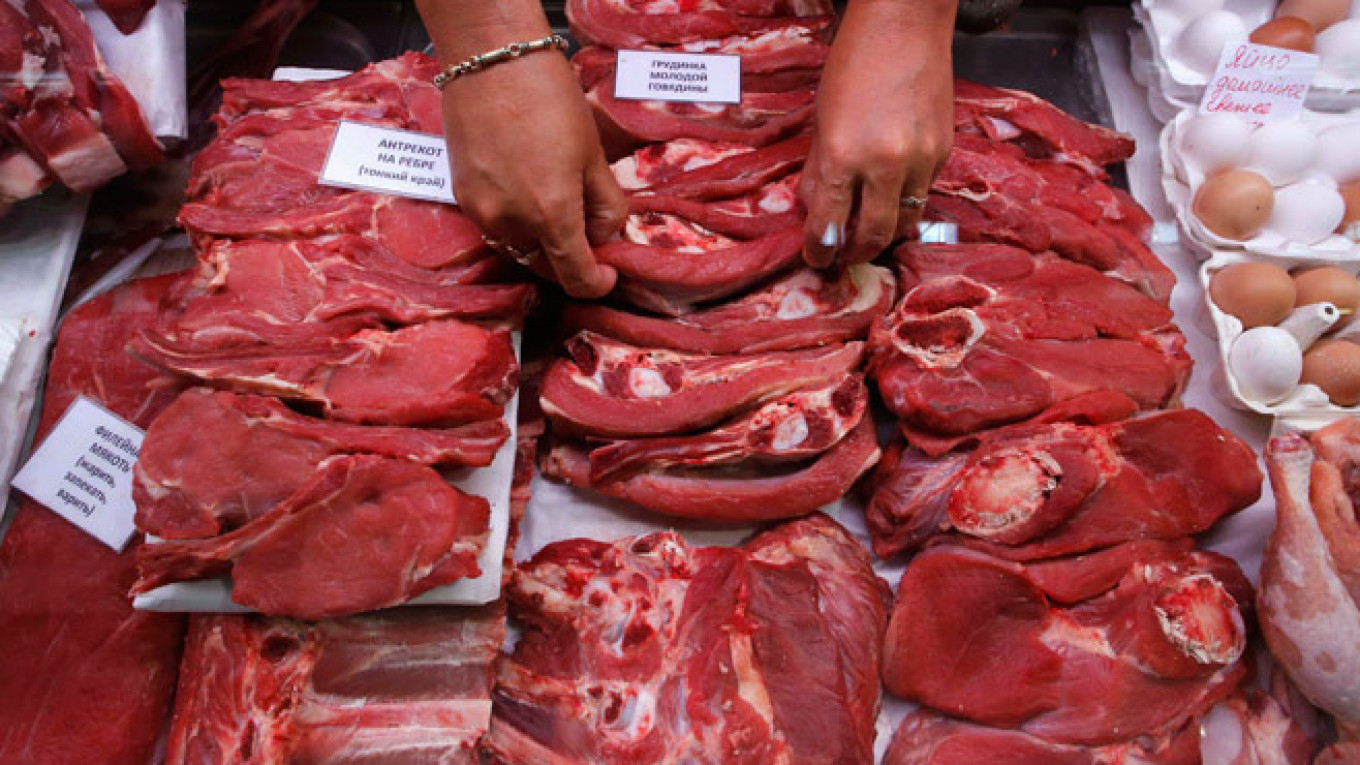The European Union plans to lobby countries that could benefit from Russia's bans on Western food imports, such as Brazil and Chile, to refrain from bumping up their exports and stick to the international party line on Russia's conduct in Ukraine, the Financial Times reported.
A senior EU official said at a briefing Tuesday that the 28-state bloc "will be talking to the countries that would be potentially replacing our exports to indicate that we would expect them not to profit unfairly from the current situation," the Financial Times, or FT, reported.
Another official said that the talks would be "political" in nature, emphasizing the importance of a united international stance on Russia's alleged aiding and abetting of separatist rebels in eastern Ukraine.
In retaliation against Western sanctions, Russia last week banned imports of fruit, vegetables, fish, meat products, cheese, milk and dairy from countries with sanctions against Russia over its policy in Ukraine — namely, the European Union, the U.S., Australia, Canada and Norway.
As soon as the ban struck, commentators on both sides said that the Kremlin's retaliatory measures were a shot in the foot: Russia depends heavily on foreign produce imports, especially during the winter months.
Moscow has looked first of all to Latin America for alternate supplies to mitigate the impact on Russian consumers. On Thursday, Russia's state agricultural watchdog, the Federal Veterinary and Phytosanitary Inspection Service, held talks with representatives of Brazil, Argentina, Ecuador and Chile on the prospect of increasing food imports from the region.
The move is already bearing fruit: Brazil in particular has authorized the immediate export of chicken, beef and pork from 90 meat plants to Russia, and expects to boost exports in other categories as well, the FT reported.
"Russia has the potential to be a large consumer of agricultural commodities, not just meat," the FT cited Seneri Paludo, Brazil's secretary for agricultural policy, as saying.
Another country expected to benefit from the ban is Chile, which could take over from Norway as a major exporter of fish to Russia.
While the initial impact on some European producers, such as Greek peach farmers, has been dramatic, an EU agriculture official said during the briefing that he believes the situation will not be as dire as anticipated, as any country diverting its exports to Russia will most likely open up new markets for EU producers in other parts of the world.
Agricultural experts representing all 28 EU member states will meet in Brussels on Thursday to draw up a comprehensive response to Russia's import bans.
A Message from The Moscow Times:
Dear readers,
We are facing unprecedented challenges. Russia's Prosecutor General's Office has designated The Moscow Times as an "undesirable" organization, criminalizing our work and putting our staff at risk of prosecution. This follows our earlier unjust labeling as a "foreign agent."
These actions are direct attempts to silence independent journalism in Russia. The authorities claim our work "discredits the decisions of the Russian leadership." We see things differently: we strive to provide accurate, unbiased reporting on Russia.
We, the journalists of The Moscow Times, refuse to be silenced. But to continue our work, we need your help.
Your support, no matter how small, makes a world of difference. If you can, please support us monthly starting from just $2. It's quick to set up, and every contribution makes a significant impact.
By supporting The Moscow Times, you're defending open, independent journalism in the face of repression. Thank you for standing with us.
Remind me later.






